This is the second part of a series on the three types of income one can get through real estate investing. If you missed the first part, please read it before reading this. You can find part one here – How to get portfolio income through real estate investing
Earned income is the type of income that only comes in if you work for it. Sometimes it is also referred to as active income. In real estate, we can get earned income by investing for capital gains, and also through commissions or professional fees by acting as a real estate broker or agent. For beginning real estate investors, earned income is arguably the easiest to earn.
Earned income through capital gains
A common way to get earned income through real estate is by investing for capital gains. We can get capital gains through buying and selling properties quickly for a profit, which is more commonly referred to as flipping. Flipping can be further divided into wholesaling or retailing.
Wholesaling
From what I understand, wholesaling is when one ties-up a property under contract, turns around, and sells it to a buyer who is usually another real estate investor for a small but quick profit. The wholesaler basically buys a property below market value and sells it at a higher price but still below market value, leaving enough room for profit for the next buyer. Sometimes it is also possible to just assign the contract.
Retailing
Retailing on the other hand is when you buy a property, renovate or rehabilitate it (hence the term rehabbing), and then sell it for a bigger profit as compared to wholesaling. Although flipping is usually associated with quick deals, retailing is also often described as flipping, even if it obviously takes longer to complete.
Wholesaling and retailing examples
In our previous example on portfolio income, I bought a foreclosed property for Php1Million, renovated it, and sold it for Php1.5 Million. That’s a perfect example of a retail deal.
What if I just tied-up the property by putting an earnest money deposit, and then sold it to another real estate investor by assigning the contract to him for a total contract price of Php1.2Million, leaving him with still enough room for a significant profit if he himself would renovate and sell the property for Php1.5Million afterwards? That’s wholesaling! Your profit of Php200,000 is your earned income.
By the way, if one is investing for capital gains through flipping, one can be greatly affected when market conditions deteriorate and property values go down. One may not be able to sell the property at the desired selling price.
Earned income through commissions
Another way to get earned income through real estate would be through commissions, either as a real estate broker or agent. Take note that I said through real estate, not through real estate investing. In my opinion, when one is after commissions, it is not really investing in real estate but is rather selling time and effort, more on this later.
In the Philippines, the common commission rates for brokers are 3% to 6% while agents usually get 2% to 3%, at least that’s what I often see from other real estate brokers and agents. Remember, I am also a licensed real estate broker.
Want to get notified when this is updated? Subscribe for free updates!
Get new/updated foreclosed listings, auction schedules, property buying tips, and more, sent straight to your email inbox. It's free!
Advantages of earned income
1. You get quick cash – There is a potential for quick cash because of the quick turnaround time for selling the properties when filliping or acting as a broker. Obviously, there is still a need to actually sell the property and close the deals
2. Requires little capital – When you structure a wholesale deal, one might be able to tie-up or get the property under contract with just a little earnest money which means there is little capital needed. If you act as a broker, there is really no capital needed as you are just selling someone else’s property.
Disadvantages of earned income
1. No sales, no income. Effort driven – If you are unable to consistently (1) find a property to flip or to broker and (2) complete the deal by actually selling it and closing the deal, no income comes in.
2. Need buyers or investors lined up – For flipping to work, you obviously have to have a lot of ready buyers or investors lined up to buy the properties from you.
3. Highest tax rates – If you consistently buy and sell properties and the BIR sees that you are already habitually engaged in the real estate business, your earnings will get taxed at earned income levels, and you pay this through income tax. If you end up at the highest tax bracket, your income will get taxed at a rate of 32%, if I’m not mistaken. Take note however that one can still lower the taxable income through allowable deductions, thereby lessening the payable income tax.
In our example above where the wholesale deal netted a gross profit of Php200,000, one would have to pay income tax amounting to 32% of Php200,000 or Php64,000. If one is also habitually engaged in real estate (you already have at least 6 real estate transactions in the current year), you also have to consider Creditable Withholding Tax (CWT) and VAT if applicable. Yes, you read that right, CWT should be considered instead of Capital Gains Tax (CGT).
If you earn commissions by being a broker or an agent, you also have to pay income tax.
4. Earnings might be inconsistent – Earnings become inconsistent because there will surely be months with no sales or when there are no ideal properties to flip. In case market conditions go bad, one who is investing for capital gains through flipping, one can be greatly affected as market conditions deteriorate and property values go down. One may not be able to sell the property at all.
5. You are actually selling your time, instead of investing in real estate – One drawback is you really have to put in a lot of time and effort into this type of income. I can’t help but say that this sounds like you are back in the rat race.
6. You let go of a property and its fruits – When you flip properties, you let go of the potential cashflow it can generate, along with any appreciation that the property may have as the years go by. How many times have you heard other seasoned investors say that they regret selling a property because of the excellent rental income they could have had up to now, along with the appreciation of the property ? In a way, all the effort in finding a good deal goes to waste.
Is earned income through real estate for you?
I guess it depends on one’s answer to the question “Why are you getting into real estate investing?”
Is it for quick cash? Do you want to get rich quick? Or is it for financial freedom?
Either way, I suppose this is meant to replace the income you would get from a regular 9 to 5 job and right?!
To illustrate, let’s just say your target income is Php100,000 per month. Lets run the numbers and see how we can achieve this through flipping or through commissions.
How many deals would it take to make Php100K per month through flipping?
In my opinion, a wholesale deal worth pursuing should at least make a net profit of 100K so this means you need to complete a deal at least once a month. Again taxes must be considered, the Php100,000 should already be net of all applicable taxes.
If your profit will be taxed at a rate of 32%, then your gross profit should be at least Php100,000/(1-0.32) = Php147,058.82
For retailing, which usually takes 3 months to complete on the average, a decent target would be to earn at least Php300,000 of net profit. This means your gross profit should be equal to Php300,000/ (1-0.32)= Php441,176.47
Do take note that the above should apply when you are already categorized as someone who is habitually engaged in real estate by the BIR.
Again this is on target for the goal of making at least Php100,000 of net income per month.
But there’s a catch. If we apply the 100-10-3-1 rule where for every 100 deals we analyze, we can expect to have 10 worth inspecting, and 3 are worth making offers, to end up buying one, this means we need to have more than enough leads that would lead to 100 deals worthy of being analyzed and we have to do this each and every month, 12 months a year, or else your income won’t come in. And we haven’t even considered marketing which is needed to sell the properties, which is also very labor intensive.
How many deals would it take to make Php100K per month through commissions?
Let’s say you are a licensed broker and are entitled to a 5% commission for each sale of a property worth less than Php10Million. How much worth of properties do you need to sell just to make Php100,000 per month.
Assuming that you will have to pay income tax at the rate of 32%, then the actual commission one needs to earn would be Php100,000/(1-0.32) = Php147,058.82, similar to the example above for flipping. If this amount represents the 5% commission, then the property should be worth Php147,058.82/0.05 = 2,941,176.47. This means I need to sell about Php2,941,176.47 worth of properties per month just to take home Php100,000 of earned income.
Why does it feel like I’m back in the rat race if I focus on earned income generating activities? Is it just me or are you also beginning to feel that getting earned income through real estate is no different from having a job?!
So much work and taxes to pay and income stops when you stop working
If your goal is financial freedom, then earned income in itself might not be able to provide this mainly because of the amount of work to be done, the huge amount of taxes to pay, and the income stops once you stop working actively, unless you find a better way…
My thoughts on earned income
Earned income is okay if it will eventually be used to buy passive income generating assets. Earned income through flipping properties is great for the short term. The long term goal is to use these earnings to eventually buy properties that generate passive income.
I also believe it would be a good source of supplemental income as opportunities arise, where significant and quick profits are hard to ignore. Supplemental in the sense that it can supplement our income while we ultimately build our passive income streams.
Earned income generating activities as explained above like flipping through wholesaling/retailing and earning through commissions are okay if they can be turned into a business where you are the business owner. When I say business owner, I mean the business can thrive even without you. If a business can’t survive without you, then you own a job, not a business, as paraphrased from Michael Gerber’s book “The E-Myth Revisited”.
Let me try to explain these further in the next part of this series.
Coming up next: Passive income – the path to financial freedom
Coming up in the third part of this series, I’m going to tackle how one can build passive income streams through real estate investing, which I believe is the path to financial freedom.
Passive income through real estate investing – the path to financial freedom (Part 1)
To our success and financial freedom!
Jay Castillo
Real Estate Investor
Real Estate Broker License #: 3194
Blog: https://www.foreclosurephilippines.com
Follow me in Twitter:http://twitter.com/jay_castillo
Find us in Facebook:Foreclosure Philippines facebook page
Text by Jay Castillo and Cherry Castillo. Copyright © 2010 All rights reserved.
PS. Are you a new visitor? Click here NOW to start learning more about foreclosure investing in the Philippines
PPS. Don’t be the last to know, subscribe to e-mail alerts and get notified of new listings of bank foreclosed properties, public auction schedules, and real estate investing tips. Inbox getting full? Subscribe through my RSS Feed instead!



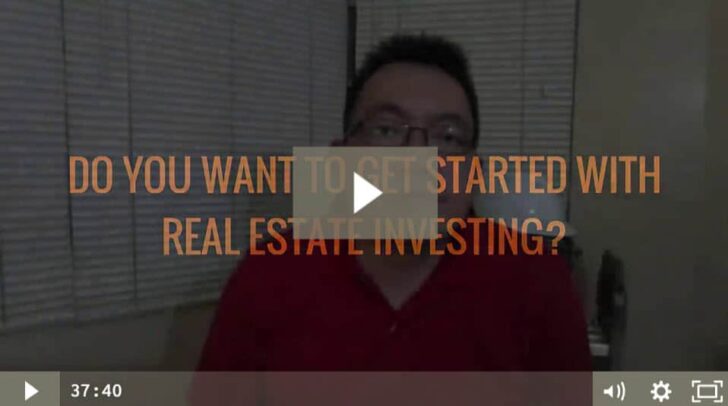
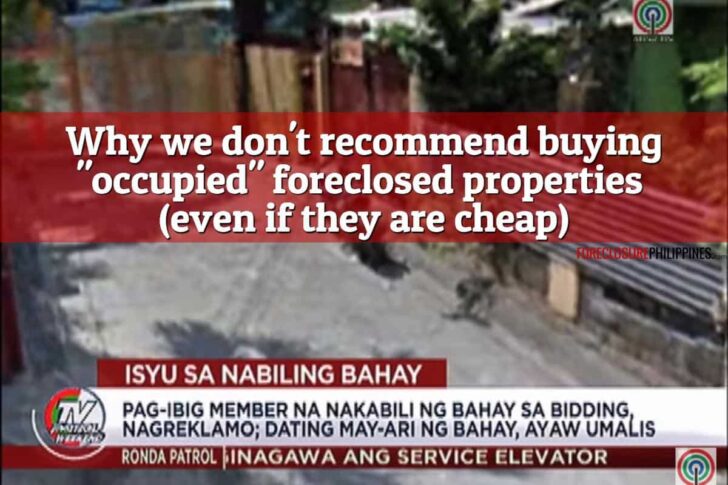
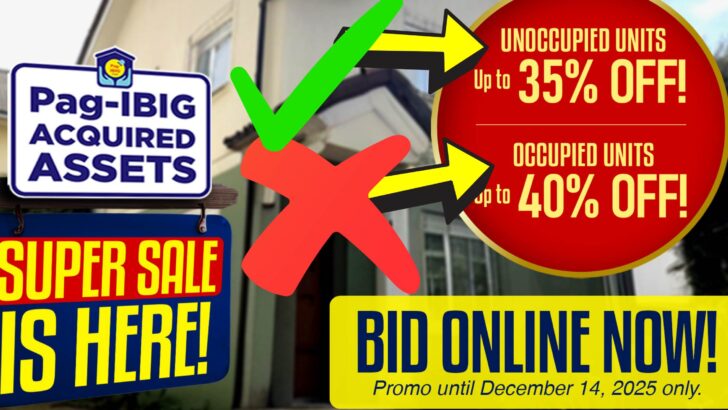
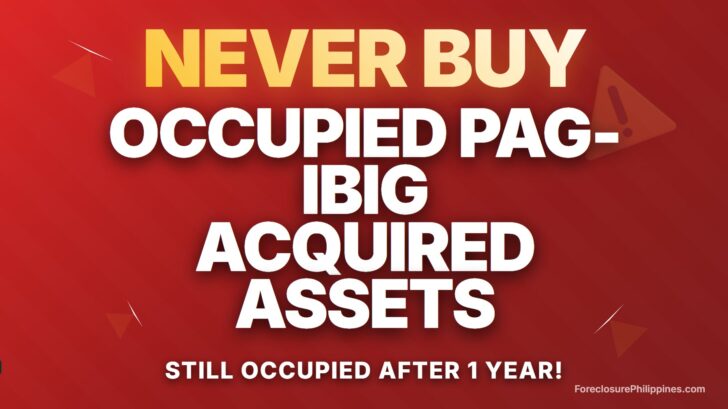
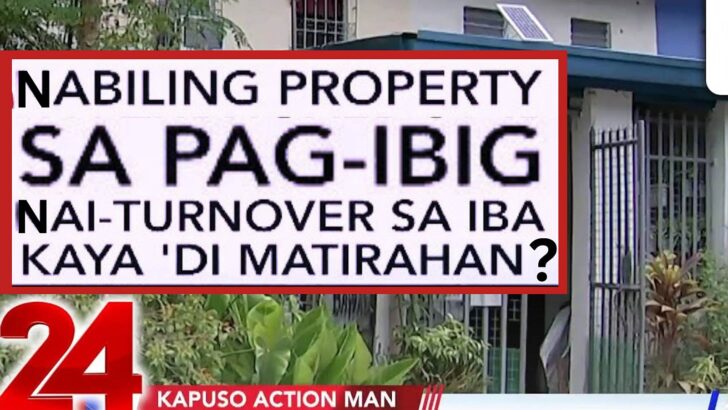
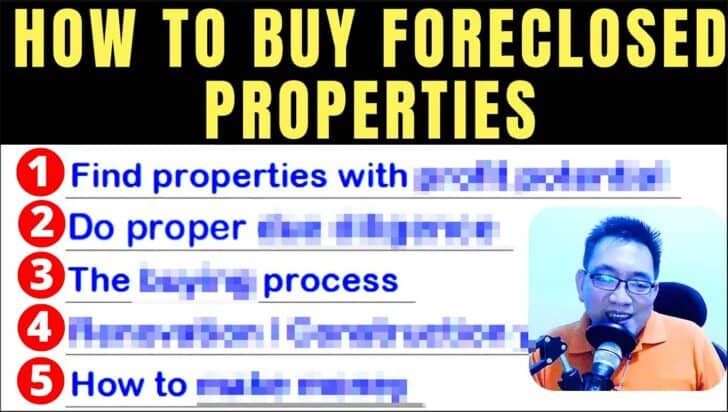
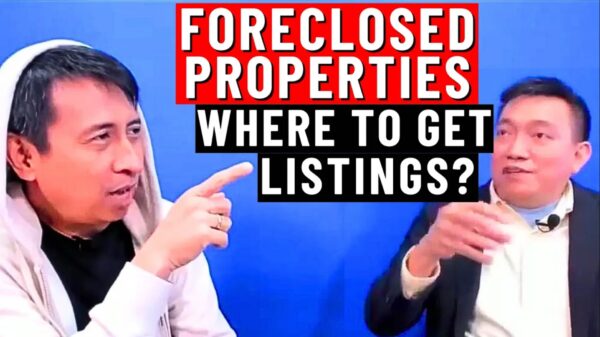
Pingback: The three types of income in real estate investing
Hello Jay,
Wonderful post.
I am wondering how much does it take to retire in the Philippines? Hypothetically, would Php15million be sufficient to produce a risk-free rate of return that yields Php150,000 per month?
Thank you.
Hi!
I would like to ask if what are the deduction’s an agent would get if he gets a commission? He’s not a licensed agent though, but with someone who is a licensed broker. In Philippine setting, should it be 60-40 scheme, 60 from agent? Are there taxes deducted from principal amt such as witholding tax and 12% VAT? Let’s say 1st cheque is Php28,000, what is the usual computation that an agent should get?
Appreciate your help on this. Thanks.
Hi again jay. Sorry for taking too much space in your blog.
It’s just that up to now, there are still things not clear to me which is stopping me from investing in real estate business. I am stuck in determining the NET PROFIT in selling real estate and that can only be determined by filing your income tax.
Is it possible for you to give an example of a seller’s income tax who is 1) habitually and 2) not habitually engage in real estate business? (Let us just limit all the income, taxes, expenses generated on selling real estate)
Hi Jay, I’m a bit confused when you mentioned that CWT needs to be paid
but isn’t CWT creditable to the income tax therefore it’s not an
additional tax on top of the 32% Income tax.
Second thing, could you help me analyze my situation. I’m an OFW who
bought a condo unit for 4m which I’m planning to flip/assign before
turnover. What would be the transactions cost involve, do I still need
to pay CGT, DST, Transfer Tax, Agents Fee, etc even though i did not
close the sale? Then Do I still need to file for income tax?
Btw, thanks for sharing helpful information all the time.
Pingback: Passive income through real estate investing – the path to financial freedom (Part 1)
Pingback: 3 types of income in real estate investing and which strategy to use
Hi jay, kindly advice me if the deal is good or bad a property 3storey bank approval is 6 million dp 1.4 m total selling price is 7.4 million problem is the property originally design as house as the tenant made improvement making house a building the govt said they have to pay for improvement taxes if i buy this but the structure is week design only for houses i am not sure if it safe to least for dormitory bank said base on their valuation even 8.5 m is still ok do you think its a good deal considering you have to spend another million for improvement potential income is 70000 monthly rent and mortgage 65000 as an investor is this deal good or bad thanks.
I am a member of Pag-ibig Fund and would like to own a house, do you have an idea what real estate developer is the best in our country today? I am looking for a house in Cebu City area.
hi edward,
i have a friend who is selling her house and lot in Maria Luisa Estate Park, Banilad Cebu City. you can email me for queries if your interested @ itcjr_ph@yahoo.com
how can i be a licensed professional real estate broker?
Yeah, this really a nice post. I agree most of the idea, specially advantages and disadvantages of investing. Thanks for this post. Hope to see more from you.
Hi Jayson, thanks for stopping by and for the compliment!
Another “must-read” I would say. You are very good at explaining Jay. 🙂
Now, the big question is, when is the next part of the series 😉
Hi Ian, thanks! The next part for this series will come out on Monday, June 7, 2010. Articles like this usually come out Mondays. 🙂
Hi Ian, sorry I’m running late. The article will be ready today, June 8, 2010. Medyo nagkaproblem ako with my hosting last week(I was still able to fix things on time and there was no downtime) and I had whole day seminars the whole weekend from 8am to 9pm last Saturday and Sunday, not to mention I had to accompany my son to his doctor yesterday for his “well baby” checkup, among a number of “urgent” things to do… sigh. Ganyan talaga yata pag ikaw lang ang may “free time”, sayo pinapasa lahat.
Hi Jay, thank you for this “another great article”. Now I am more excited to read the finale of this series. God bless you and your family.
Mike
Hi Mike, thanks! I was supposed to publish the last part of this series yesterday but was unable to do so due to time constraints. I’ll publish the finale today! i apologize for the delay.
This is one of the best blog, i must wanna share my views about this posting, thnx.
Thank you Rockon for the compliment and for dropping by!
Hi Jay! Thanks for the wonderful post again!
So, if a seller gets paid by a buyer who gets bank financing to pay up for the property, this is considered as retailing and therefore an earned income?
I don’t want to preempt your next post on this so I will ask the question on passive income when you release your final post.:)
God bless bro!
Bryan
.-= Bryan Uy´s last blog ..Housing Microfinance Loans for Rural Banks Approved =-.
Hi Bryan, you’re welcome and _I’m glad you liked it.
If a buyer pays through bank financing, in effect the deal gets paid in cash and can be considered a quick flip. If the seller renovated the property, it can be considered a retail deal. For taxation purposes, both can be considered as earned income and the seller will have to pay income tax if he/she is already categorized as habitually engaged in the real estate business(already has 6 real estate transactions in the current year). If not, he/she will only have to pay capital gains tax.
Thanks Bryan!
whats the difference of a real estate broker and a real estate agent, why do they accept different commission rate?
Hi Edgar, real estate brokers are licensed professionals and as such command higher commission rates. Real estate agents on the other hand have to be attached or registered under licensed real estate brokers in order for them to act as agents legally. Thanks for the question and for dropping by!
Sir, you said that the BIR will tax your deals if they see you habitually engaged in buying and selling of real estates, but isn’t it that in a wholesale deal you will not be named as principal seller, you will just assign your contract to other buyer so the BIR wont see you as a regular buyer or seller of properties. Meaning you can have deals as many as you want in a year without BIR charging CWT to your profits.
Hi Edgar, as far as I know, if you wholesale a deal, you will no longer appear as the seller in the deed of absolute sale, but you will still appear in the deed of assignment. Yes, you won’t have to pay CWT, but you will have to pay income tax for the income you gained when you assigned the contract.
Pingback: Tweets that mention Earned income through real estate investing